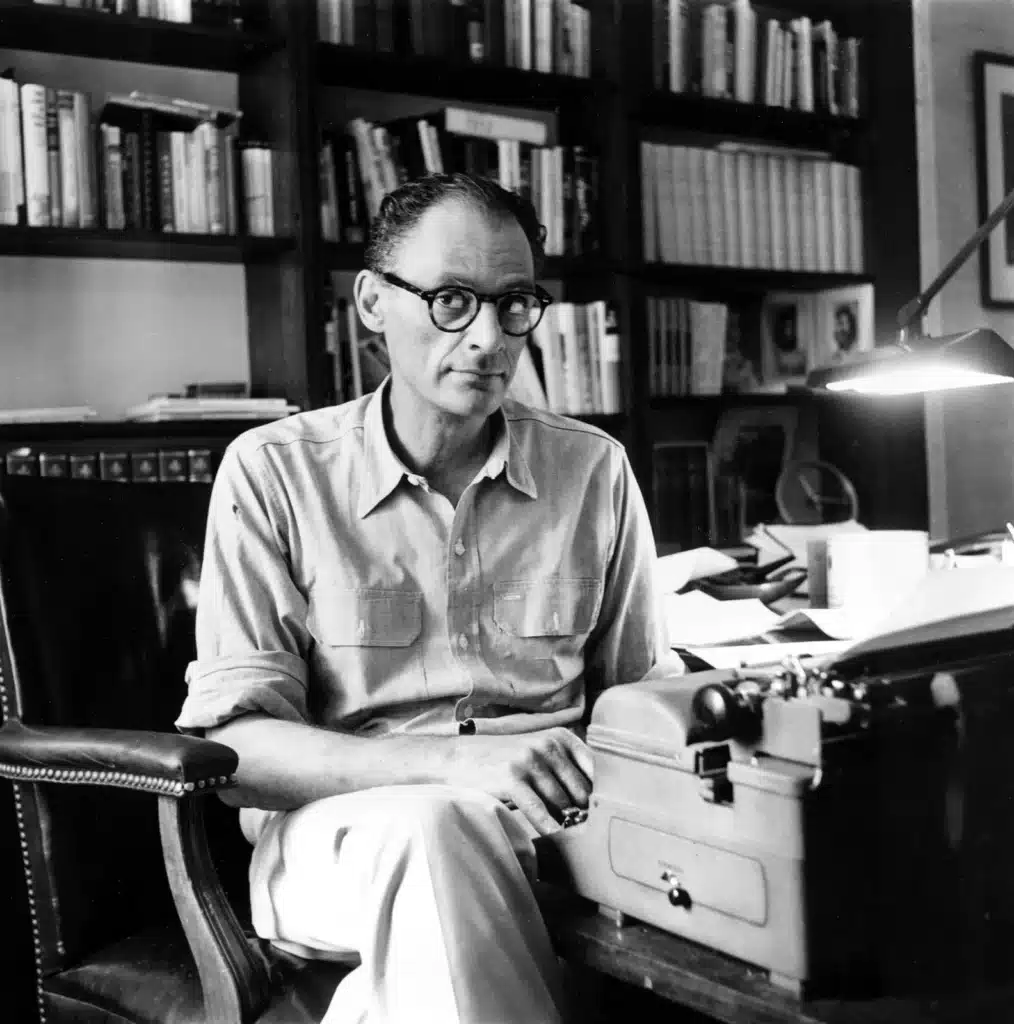Arthur Asher Miller (October 17, 1915 – February 10, 2005) was one of the foremost American playwrights of the twentieth century. Born in Harlem to Polish-Jewish immigrants, Miller’s early life was shaped by the economic upheaval of the Great Depression.
Miller’s plays are cornerstones of American realism, a movement that sought to depict life truthfully, without romanticization. Yet his work also transcended realism, as he engaged with then-contemporary ideas of existentialism and social responsibility. Miller’s All My Sons (1946), which was his first commercially successful play, examined personal ambition and the post-war spectre of the American Dream. Death of a Salesman (1949), produced shortly thereafter and investigating further the nexus of ambition and national myth, won Miller the Pulitzer Prize. The Crucible (1953), one of his most frequently produced works, shed light on the political persecution of the McCarthy era through the lens of the Salem Witch Trials.
In his later work, Miller experimented, continuing his investigation of social issues with plays such as A View from the Bridge (1955; rev. 1956) while also venturing into the autobiographical, with his play After the Fall (1964) being regarded as a reckoning of his marriage to Marilyn Monroe. Other plays, including The Price (1968) and The Ride Down Mt. Morgan (1991), developed the non-linear narrative structure he introduced in Salesman. Not to be sequestered into any one genre, Miller also made forays into comedy, with plays such as The Creation of the World and Other Business (1972).
Beyond the stage, Miller wrote for the screen, with The Misfits (1957) starring Monroe, and published essays and fiction, including the novel Focus (1945) and his autobiography Timebends (1987).
Biography written by Weston Barker
